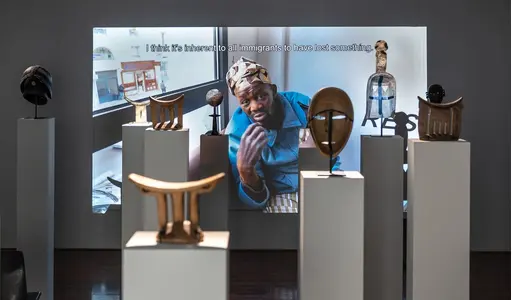
until
Introcuction Fragments of Repair
Speciaal voor Museumkaarthouders: een exclusieve inleiding op Fragments of Repair/Kader Attia, de eerste uitgebreide tentoonstelling van kunstenaar Kader Attia in Nederland.
Met video’s, fotografie, collages, installaties en sculpturale werken, gericht op Attia’s concept van ‘dekoloniaal herstel’.
Dekoloniaal herstel
Letsel, wond en herstel zijn belangrijke concepten in Attia’s kunstenaarschap, met name in relatie tot de onrechtvaardigheden van koloniaal geweld die tot op de dag van vandaag voortduren, en die extra scherp in beeld komen tijdens de huidige pandemie. Welke paden kan ‘herstel’ bieden – niet als een terugkeer naar oude manieren, maar als een traject gericht op dekolonisatie en restitutie?
De tentoonstelling snijdt in dit kader verschillende thema’s aan gericht op de ‘erfenis’ van het kolonialisme: van architectuur als een vorm van maatschappelijke en psychologische controle tot geestelijke gezondheidszorg vanuit dekoloniaal perspectief en het idee van restitutie (het teruggeven van tijdens het kolonialisme geroofde kunst en objecten) als een praktijk van sociale rechtvaardigheid.
De tentoonstelling snijdt in dit kader verschillende thema’s aan gericht op de ‘erfenis’ van het kolonialisme: van architectuur als een vorm van maatschappelijke en psychologische controle tot geestelijke gezondheidszorg vanuit dekoloniaal perspectief en het idee van restitutie (het teruggeven van tijdens het kolonialisme geroofde kunst en objecten) als een praktijk van sociale rechtvaardigheid.